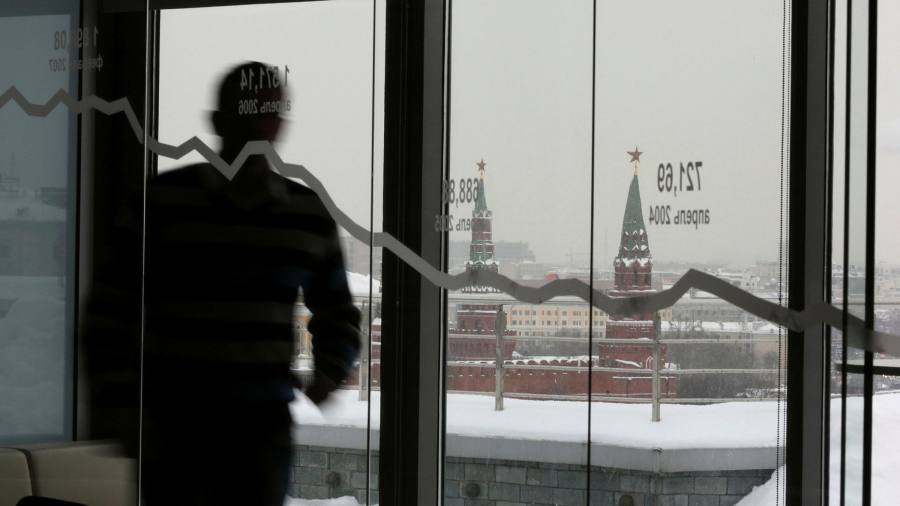[ad_1]
The Moscow Exchange is set to open currencies and derivatives trading three hours earlier from March, in the latest effort to drum up more demand from investors in China.
Trading will run from 7am to midnight Moscow time as the exchange seeks to capture more of the waking hours of countries east of Russia.
The exchange’s decision is the latest in a series of efforts by Moscow and Beijing to promote trading between the two countries, which have historically promised much but delivered little.
Plans for large-scale borrowing by Russian companies using “panda bonds†denominated in Chinese renminbi have flopped, with only one major issuance thus far.
“Growing renminbi volumes traded against the rouble has been a long-term objective of both Russia and China,†said Igor Marich, managing director of development at the Moscow Exchange.
About $30bn of transactions are carried out daily in roubles in global currency markets, overwhelmingly against the dollar. Approximately 25 per cent of the daily rouble market takes place on the Moscow Exchange.
Over the past five years, trades involving roubles and renminbi on the Moscow Exchange have risen 27 per cent, but are still dwarfed by dollar trades. Last year the exchange handled Rbs986bn ($13.4bn) worth of trades between the rouble and the renminbi, and Rbs266.6tn worth of trades between the rouble and the dollar.
“We hope that the extension of trading hours will be beneficial for these flows and we hope to see more Chinese investors trading FX and other asset classes on the exchange,†said Marich.

Efforts to develop a market for directly converting the renminbi into the rouble started over a decade ago, when Russia’s central bank and the People’s Bank of China agreed to co-operate on creating a market for trading their domestic currencies directly against each other, hoping to replace the current process of trading each against the dollar.
Rising tensions between Russia and major economies in the west have made it difficult for many investors to invest in the country’s economy. At the same time, Russia has tilted closer politically to China, which has been keen to increase the use of the renminbi on the international stage.
“We are very keen to diversify our products and we pay a lot of attention to developing renminbi and euro trading against the rouble,†Marich said.
According to the latest data from the Bank for International Settlements, 88 per cent of the $6.6tn daily currency trades have the dollar on one side of the transaction. Currency trading volumes on the Moscow Exchange averaged Rbs1.2tn in January, with cash deals growing 44 per cent compared with last year.
One emerging market currency trading specialist said the move from Moscow suggests that Russia is forced to go out of its way to attract more trading activity, rather than wealthy investors from the east banging on the exchange’s door.
“This looks like China goes home early and [they] expect Moscow to sing to their tune. Not the other way round,†this person said. “There must be a market there otherwise Moscow Exchange wouldn’t bother.â€
[ad_2]
Source link





